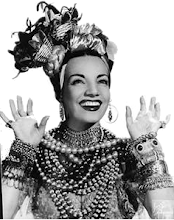Loo, Privy, and Powder Room
 Always using my time (cough) wisely, I settled in to page through Toilets of the World. I expected the developing world ones, which I’ve seen (and smelled) in person all too often, would be the most interesting. But they’re not.
Always using my time (cough) wisely, I settled in to page through Toilets of the World. I expected the developing world ones, which I’ve seen (and smelled) in person all too often, would be the most interesting. But they’re not. Skipping all the interestingly shaped and patterned bowls and urinals, here are some of my favorites.
The Whiskey Café in Quebec is a rare urinal wonder. For men, they’ve got the stream of water on a metal wall, described as “a rare treat” and “soothing.” But for women. There’s the L’urinette, a frightening urinal which looks like a cross between a torture device and a vacuum cleaner. No, thank you. I’ll be over here in the corner with my legs crossed. (Anybody been there?)
There are a lot of outhouses hovering over the end of piers in the San Blas Islands. I especially like the photo captioned “An unsuspecting snorkeller swims right under the toilet.” Big fun for the locals.
I’d include the throne at the now defunct CBGB in NYC, in a nostalgic sort of way. RIP.
I’m liking the pop-up urinal in Soho on Charing Cross Road in London. During the week, unsuspecting walkers stroll over a manhole cover, but come Thursday night, up pops a 3-urinal contraption for the weekend.
And then there’s the Hong Kong jeweler who took Lenin seriously when he said toilets should be made of gold to remind the world of capitalist warfare. He built the world’s most costly bathroom, with gold fixtures, a gold toilet brush, gold toilet paper holders, and TWO (count ‘em TWO!) solid gold toilets.
Got any great additions?












